Hugin and Munin fly each day
Over the spacious Earth.
I fear for Hugin, that he come not back
yet more anxious am I for Munin.
– Odin, the Poetic Edda poem Grnism
A raven skull, inscribed with the protective sigil of Aegishjmur, this pewter talisman is heavy with the shaman-like magic of an elder Norse world.
Hugin and Munin, Thought and Mind – these are the two ravens that sit upon the shoulders of Odin. At every dawn the ravens fly forth to all corners of the nine worlds and every day they return to Odin at his supper and tell him of events far and abroad. Though Odin may be one-eyed, he sees and perceives more than all others.
The Ravens are particularly drawn to the sound of sword against shield and the faraway glimmer of flashing steel, and they arrive soon after the battle, to land among the dead and discover the names of the fallen for Odin. In some tales, the Ravens are Odins messengers, appearing at decisive moments as signs to those in need of a moment of his guidance. In some stories, Odin grants the Ravens the ability to speak, which is interesting because ravens can mimic words in the manner of a parrot. In some translations, Muninn is thought to mean Desire instead of Mind.
The unmistakable crossed staves of the Aegishjmur (Helm of Awe) is an ancient sign that protects its bearer and dreads the foe with an aura of magic. The Aegishjmur was often carved onto lead, and would be pressed deeply upon the forehead before battle, marking the crown of the bearer with this divine sign both ward and battle hex.
This Raven skull with the sigil of the Aegishjmur is crafted from fine pewter. It has a leather neck thong that passes through the skulls eyes, held in place by a simple bar clasp.


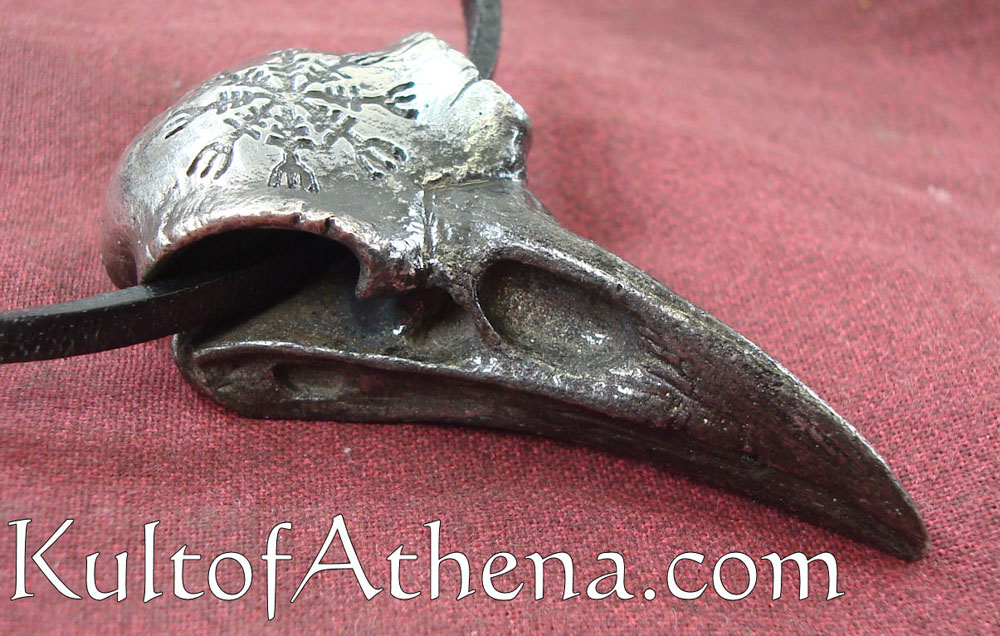
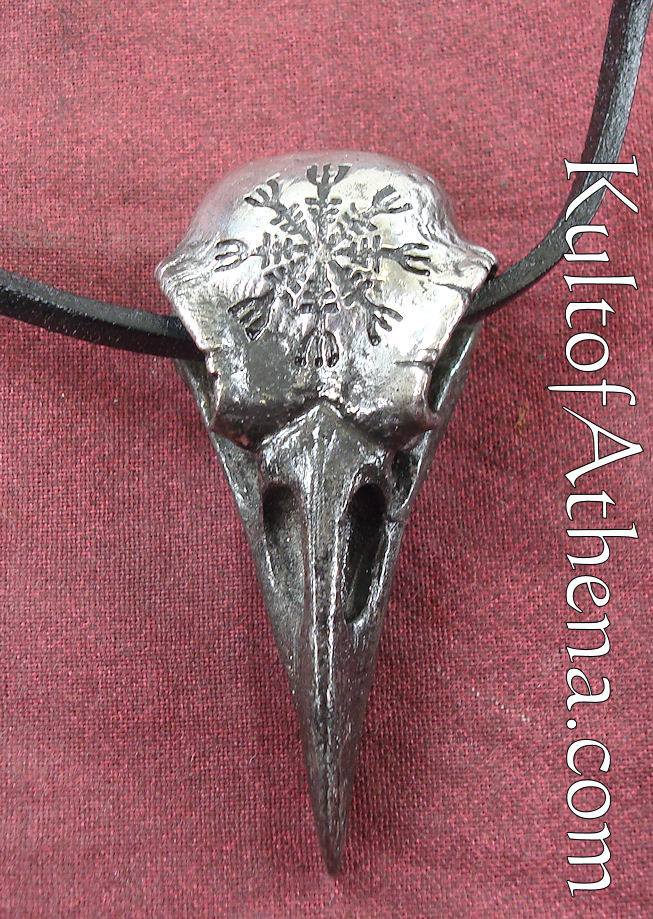
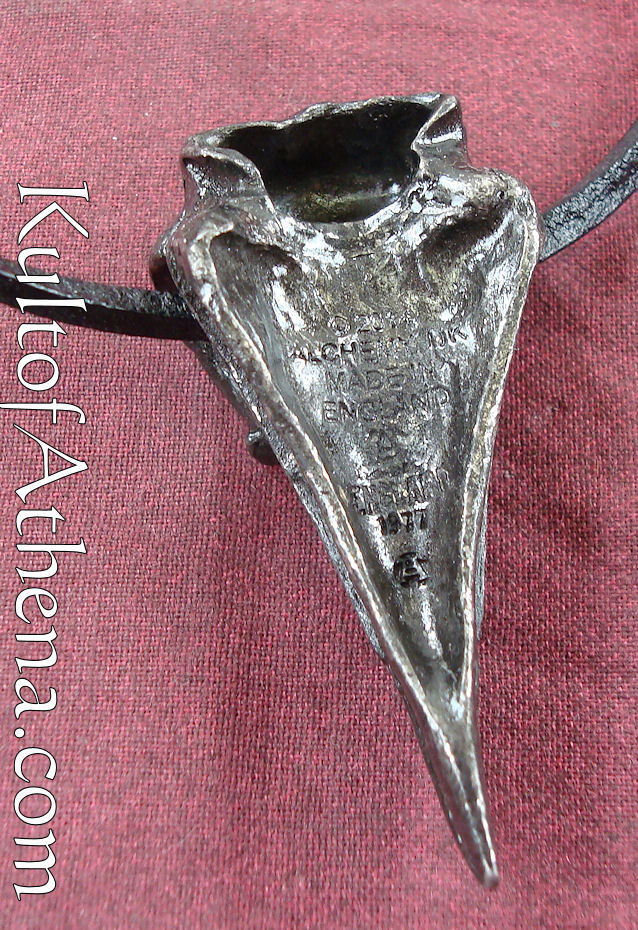
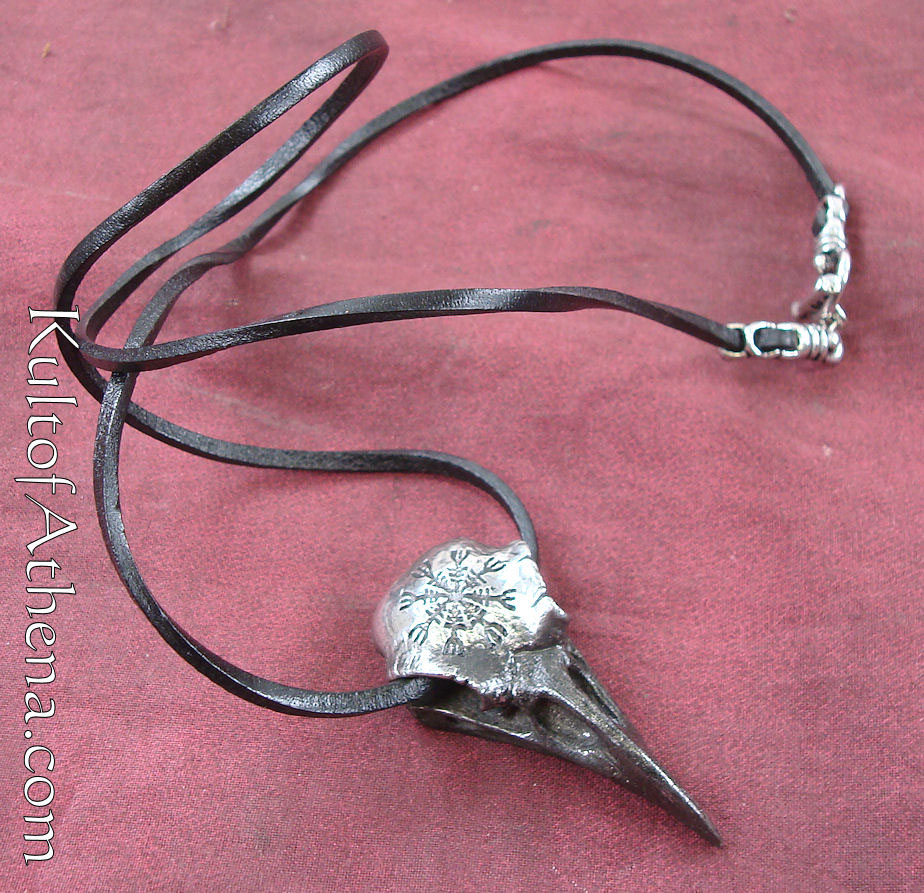
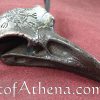
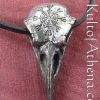
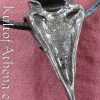
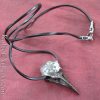
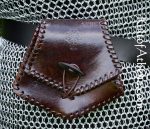
John (verified owner) –
good craftsmanship reasonable delivery time